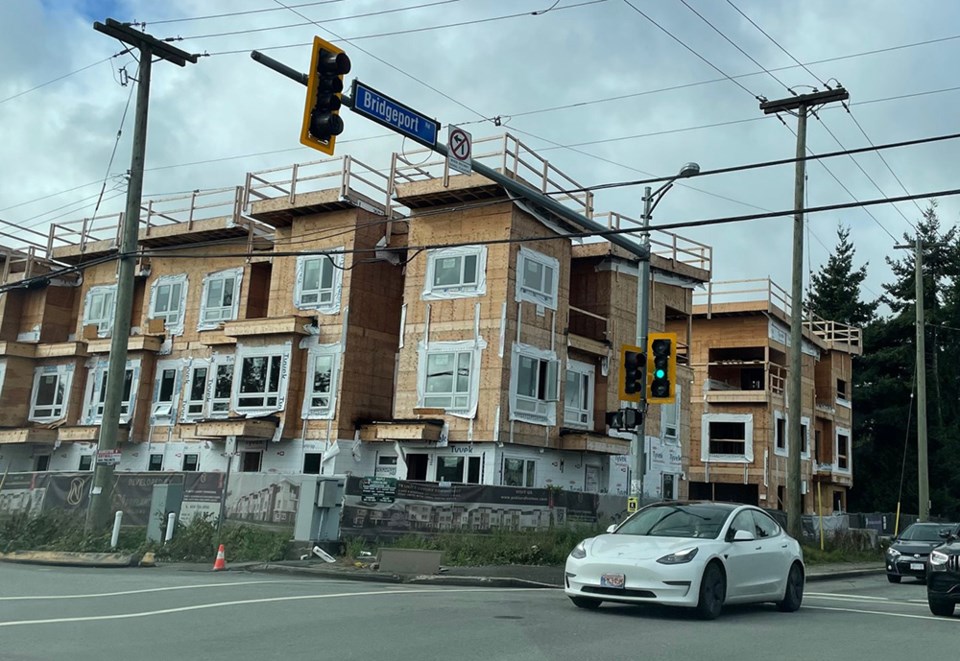Is it just me, or does it feel like humanity has squandered the last 50 years?
To put this into context, I’m 59. Born in 1965, graduated high school in 1983, had two children in the 1990s. I’m a proud member of Generation X.
I remember when I was in high school, my social studies teacher always told us the Canadian healthcare system would be in trouble when the Baby Boomers became senior citizens, if we didn’t do something to build it up in the meantime. That day has come, no doubt accelerated by the pandemic. We’re sending Canadians to the United States for cancer treatment. There are long delays for healthcare. No one can find a primary care doctor. This bomb’s been ticking for decades. Why didn’t we defuse it?
We have a housing crisis. There are no affordable homes for people who work for a living. The rental vacancy rate is so low it’s meaningless and rents for the few apartments to be found are out-of-this-world expensive. Homeless tent cities are taking over our parks and highway rest stops. People sit on housing wait lists for years, never getting a home. And yet, the population continues to grow, fueled by immigration, newcomers who won’t be able to find somewhere to live. This crisis has been growing since we welcomed the world to Expo ’86, but we continued to allow single-family homes to dominate most of the region.
I’ve been looking at real estate for the past three years, attending many open houses in search of a new home. The things I’ve seen would raise more than a few eyebrows. The living conditions I’ve seen do not reflect a wealthy country. People are living in “rooms” within houses. I’ve seen families of four or five living in one-bedroom basement suites. Many garages are now “suites.”
My tiny Richmond cul-de-sac is a microcosm of the larger system: there are five or six newly built mansions at one end that rarely have any lights on and four duplexes at the other end, each of which has more than one suite. I’ve lived here 30 years. For the first 20-some years, there was ample parking. Today, each duplex has at least four cars in the driveway and the street parking is always full.
Intense densification and construction are underway, but our civic infrastructure may not be able to handle it. How will we pay for the sewers, the new roads, and the new transit systems required to accommodate the bigger population? Those are efforts that take decades and we have been asleep at the wheel.
For the most part, Metro Vancouver’s roads and transit system have been unchanged over my lifetime. Yes, we got SkyTrain when I was 21 and the Canada Line when I was 44. There wasn’t a whole heck of a lot built in between and basically nothing since, though the Broadway line is coming. Transit to Steveston from Vancouver was probably better 100 years ago, when there were streetcars, than it is today.
Sometimes, when I’m driving home from downtown Vancouver or Kitsilano to Richmond, I cut through Shaughnessy, a neighbourhood a mere 10-minute drive from downtown Vancouver, but where there is no densification. The streets are dead quiet; the single-family homes show few signs of life. There’s no infrastructure shortfall here. It’s a beautiful neighbourhood, but I can’t help but ask why it looks just as it did 100 years ago when the rest of the city is drastically changing.
Just a stone’s throw away is the area affected by the Broadway Plan, which will densify the neighbourhood as far south as 16th Avenue, around the planned Broadway Subway. Where’s the plan for Shaughnessy?
Schools are another issue. Although the province and the Vancouver School Board just announced funding for the Olympic Village school, it won’t open until 2029. Olympic Village has been housing families since just after the 2010 Olympics. You can do the math.
Finally, there’s the environment. It’s been nearly 20 years since Al Gore’s An Inconvenient Truth called for immediate action to cut greenhouse gases to stop climate change, but global emissions are still increasing, although Canada has managed to cut emissions slightly in the past 20 years. Meanwhile, the federal government is warning the country may be facing another “catastrophic” fire season, after a warmer than usual winter and continuing droughts. A healthy planet is essential for human health. Talk about fiddling while Rome burns.
Housing and other necessities for health are fundamental human rights. As such, affordable housing, a well-functioning healthcare system and healing the planet must be our top priorities.
Tracy Sherlock is a freelance journalist who writes about education and social issues. Read her blog or email her [email protected].



